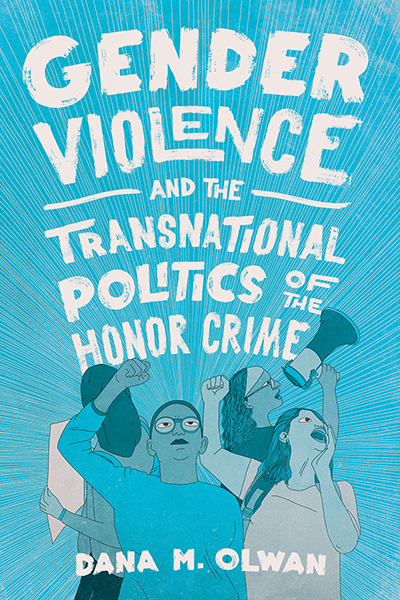In Gender Violence and the Transnational Politics of the Honor Crime, Dana M. Olwan examines how certain forms of violence become known, recognized, and contested across multiple geopolitical contexts—looking specifically at a particular form of gender-based violence known as the “honor crime” and tracing how a range of legal, political, and literary texts inform normative and critical understandings of this term. Although studies now acknowledge the complicated mobilizations of honor crime discourses, the ways in which these discourses move across different geographies and contexts remain relatively unexplored. This book fills that void by providing a transnational feminist examination of the disparate yet interconnected sites of the US, Canada, Jordan, and Palestine, showing how the concept travels across nations and is deployed to promote hegemonic agendas.
More specifically, Olwan traces the term’s appearance in public and popular works that allow for its continued mass acceptance and circulation—from media depictions in Canada and beyond, to how it is taken up in national registers about migration and belonging in the US, to activism in Palestine that reveal the fault lines between activist and academic critiques of the honor crime, and finally to feminist efforts in Jordan and the wider Middle East to confront legal codes used to sanction gender violence. Through these cases, Olwan demonstrates how the honor crime functions as a signifier that governs and manages populations, becoming intertwined in notions of modernity, citizenship, and belonging.

